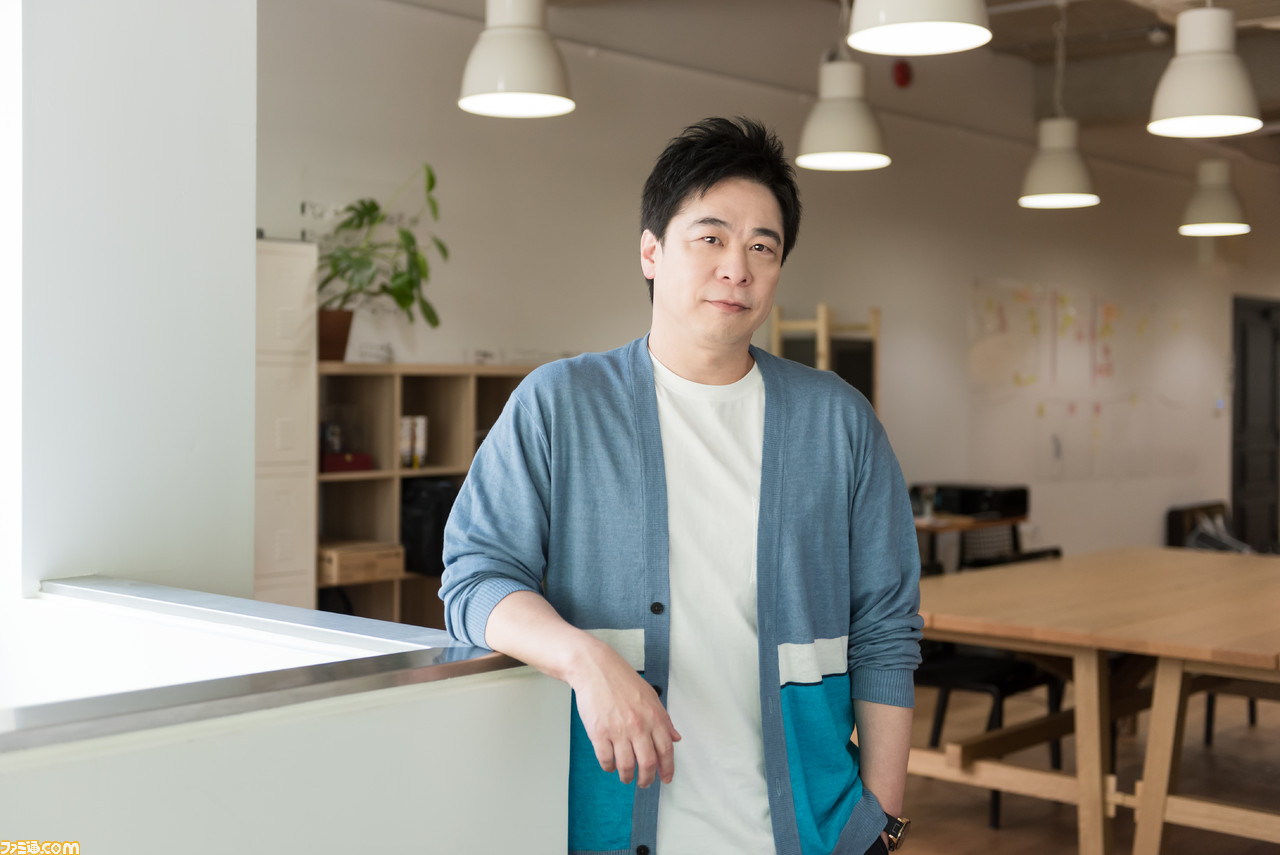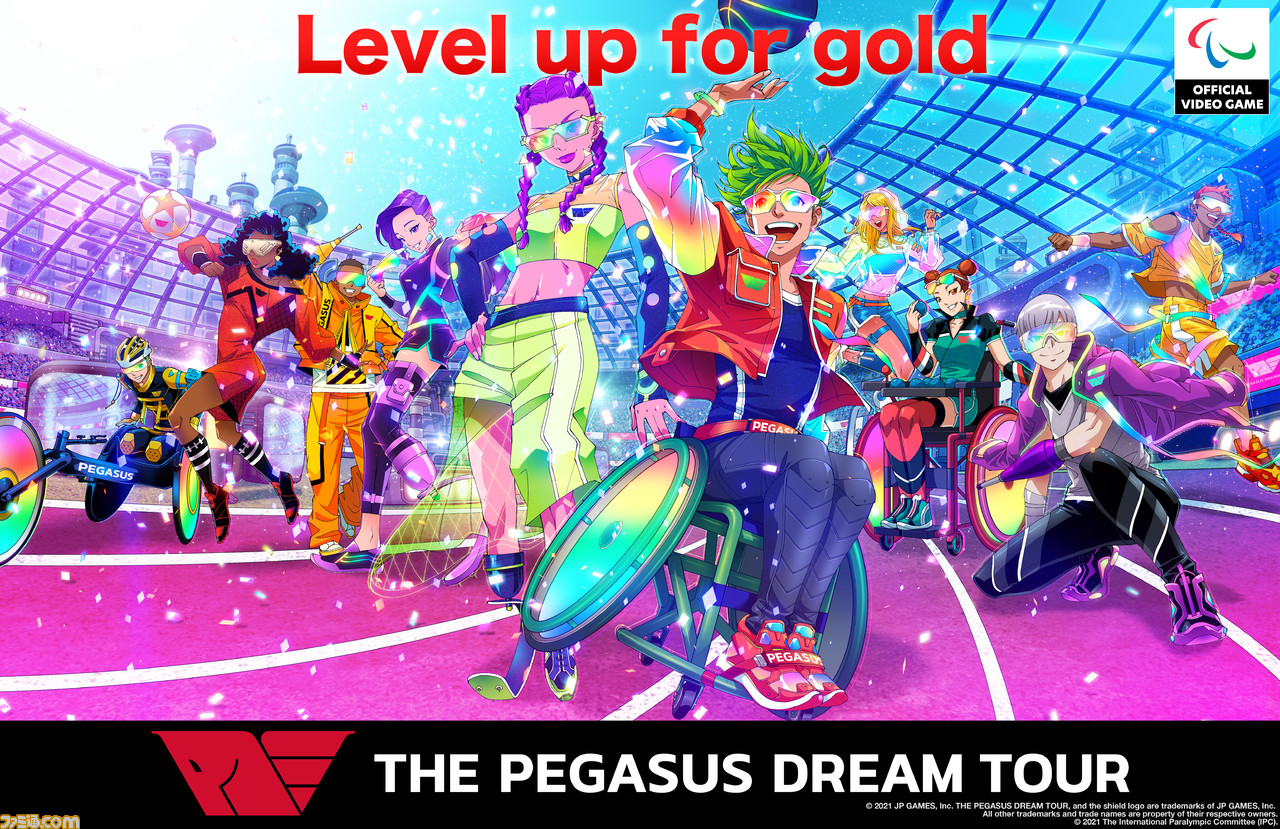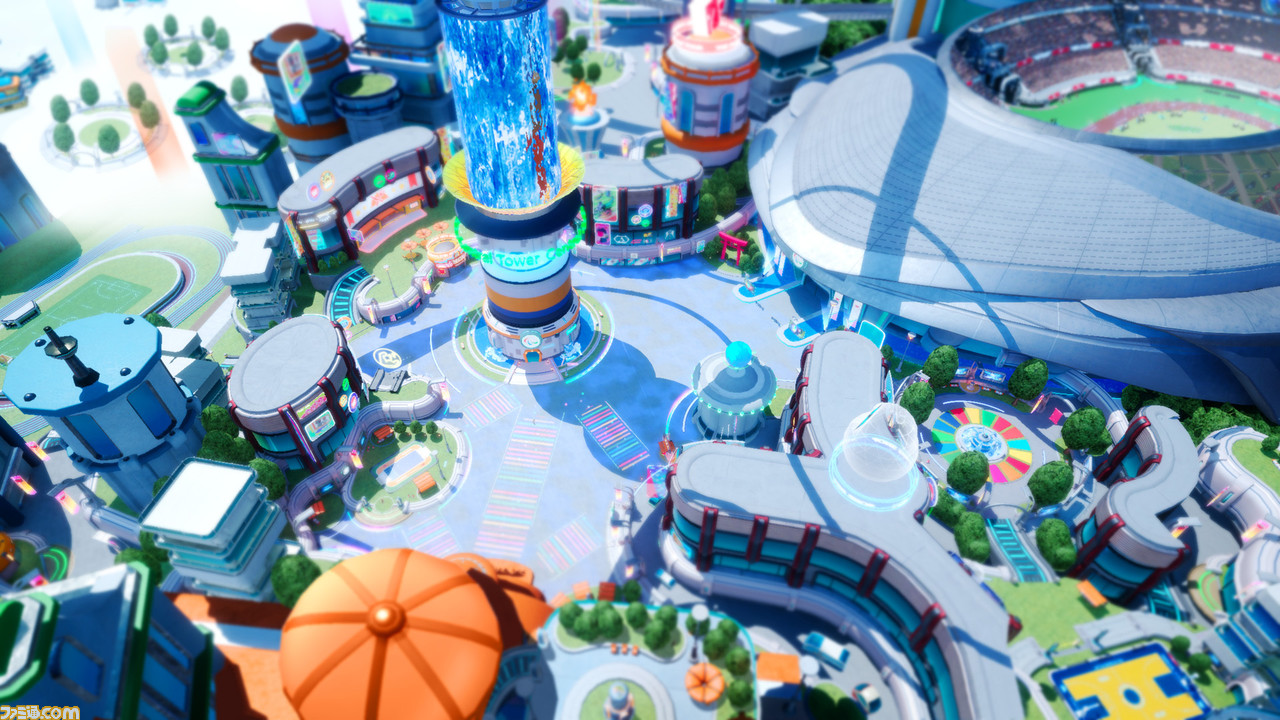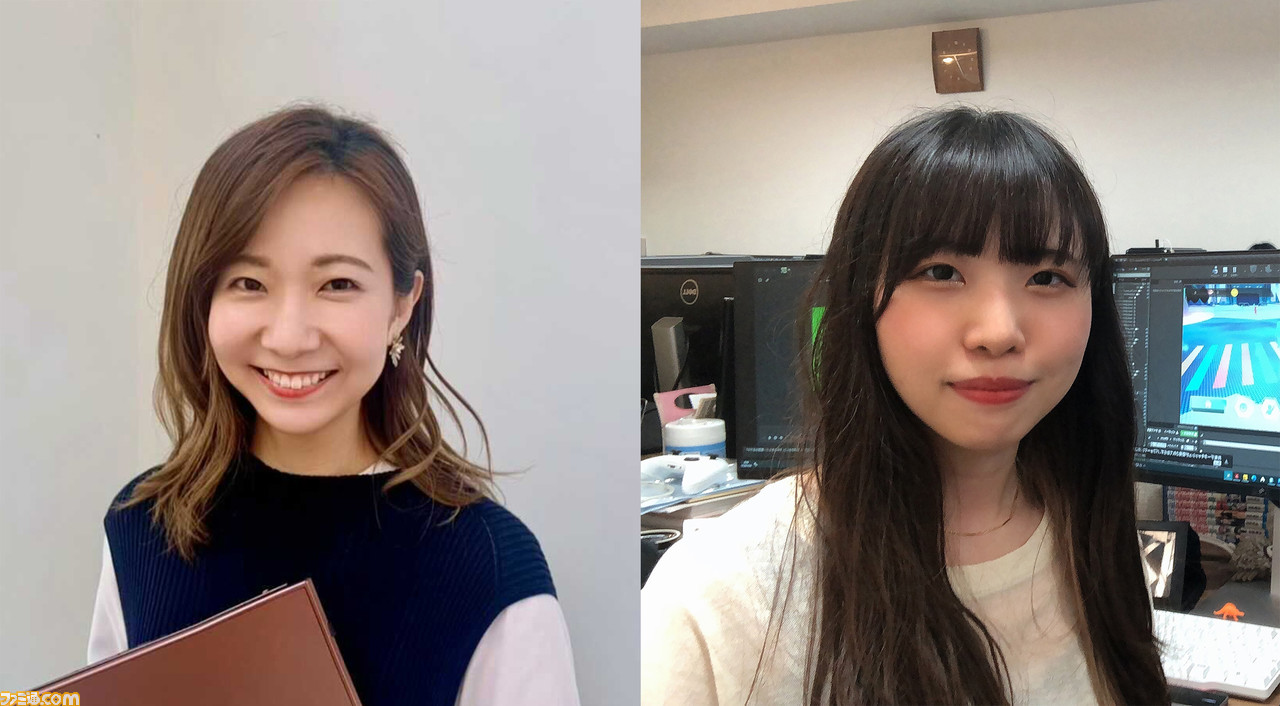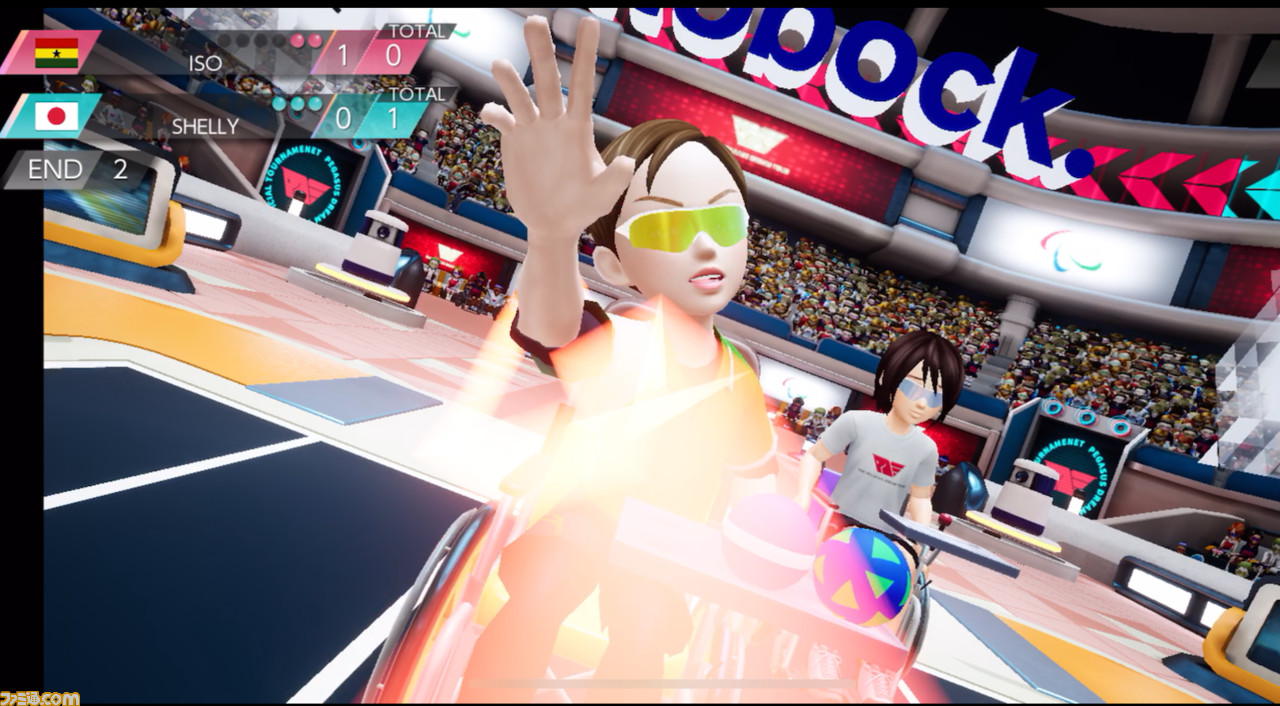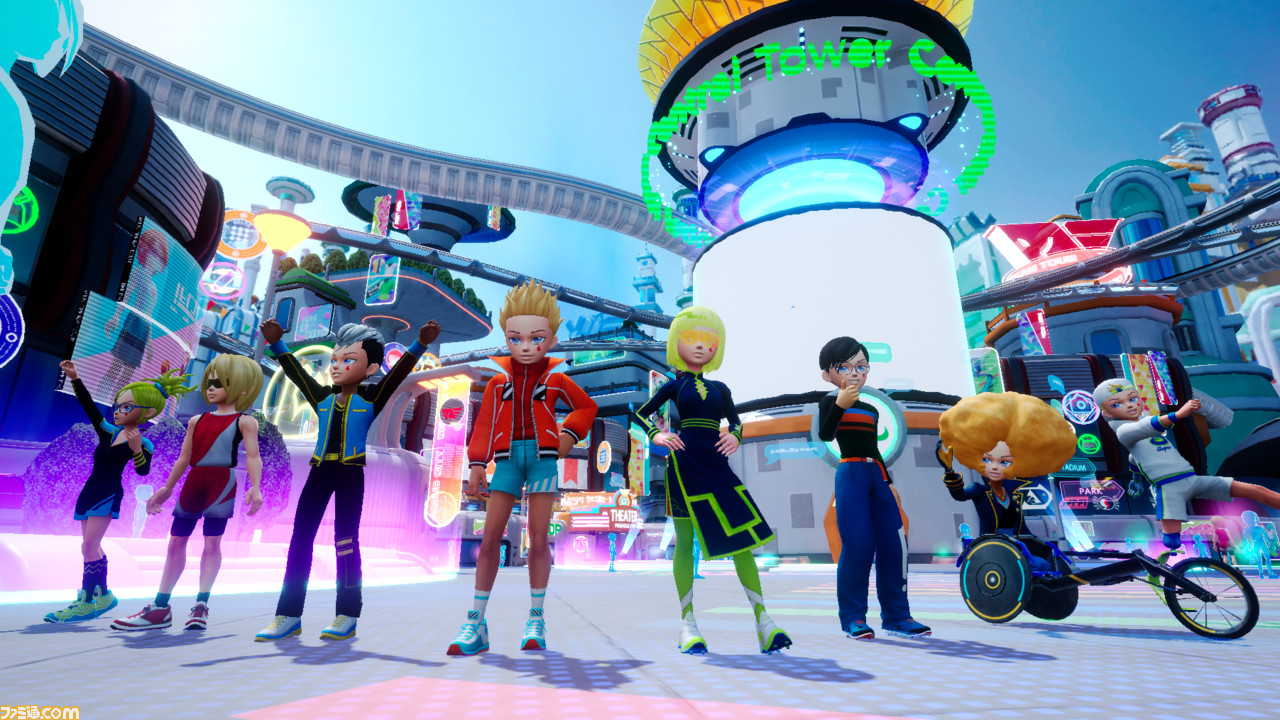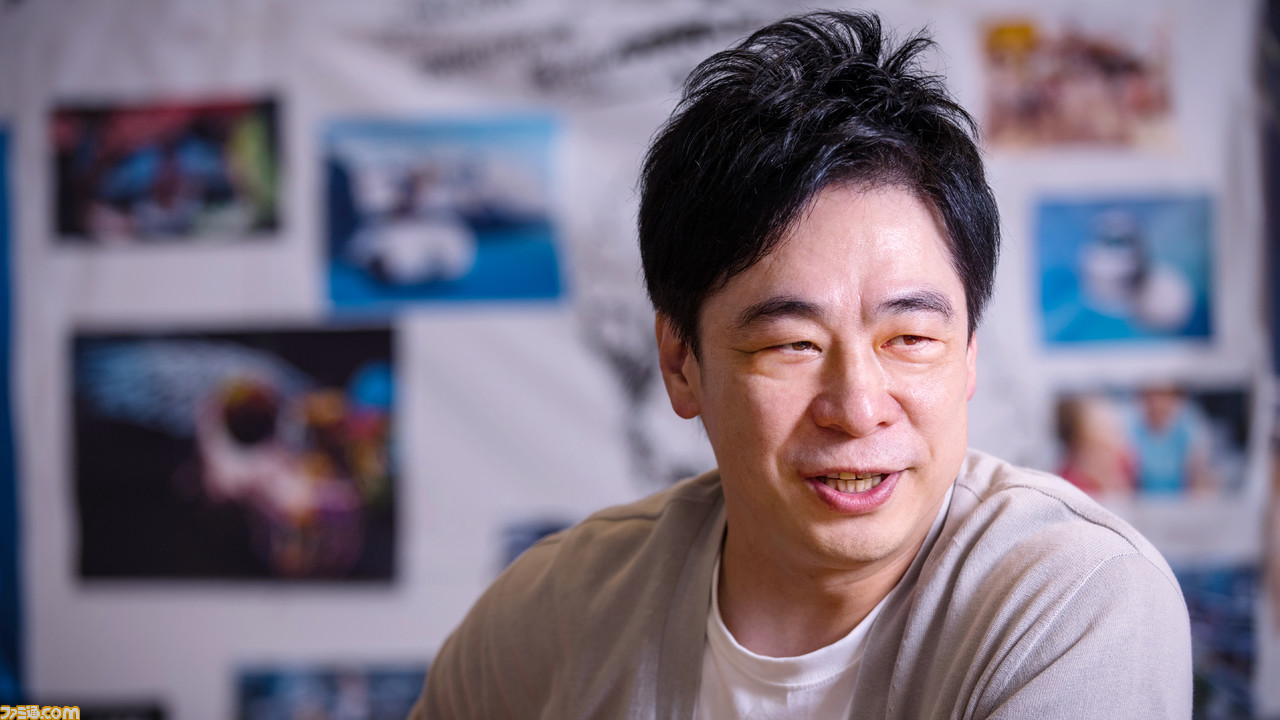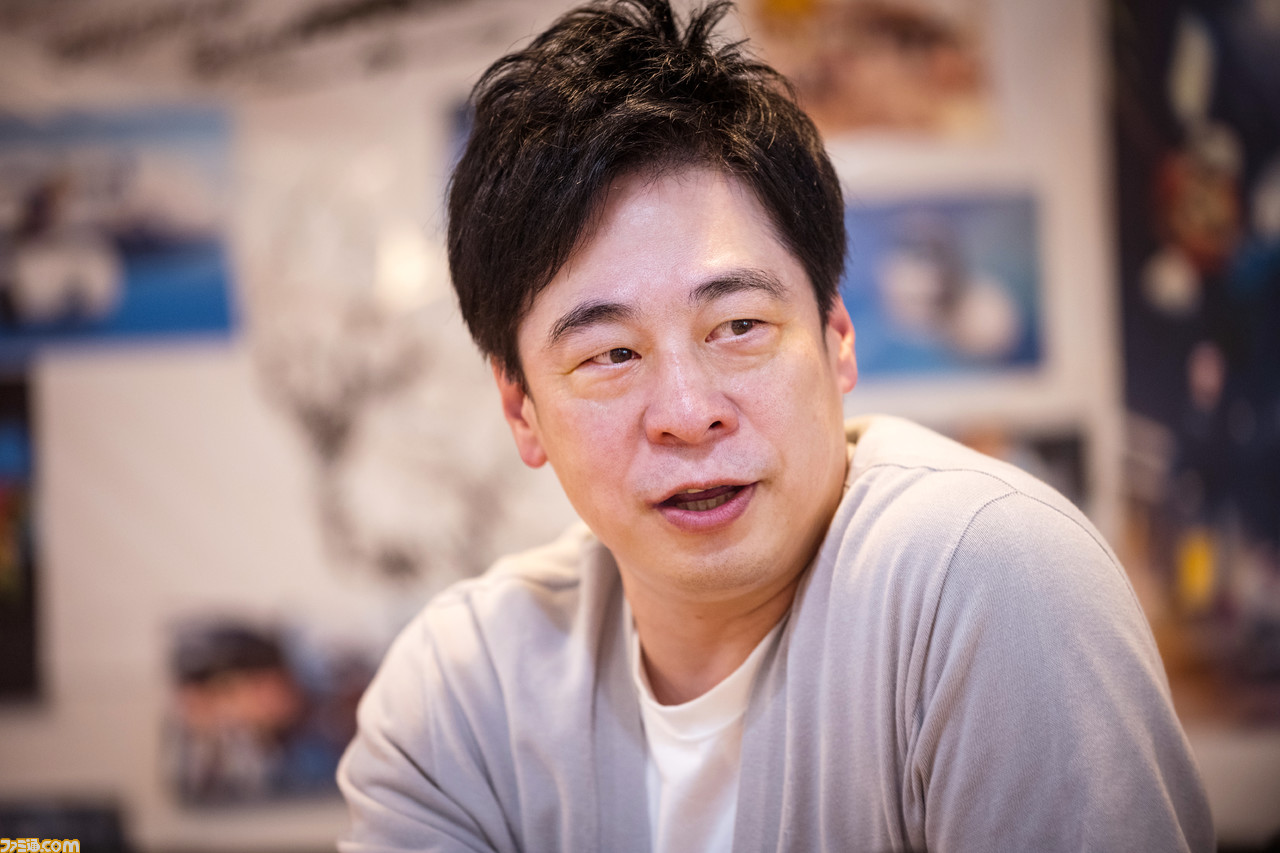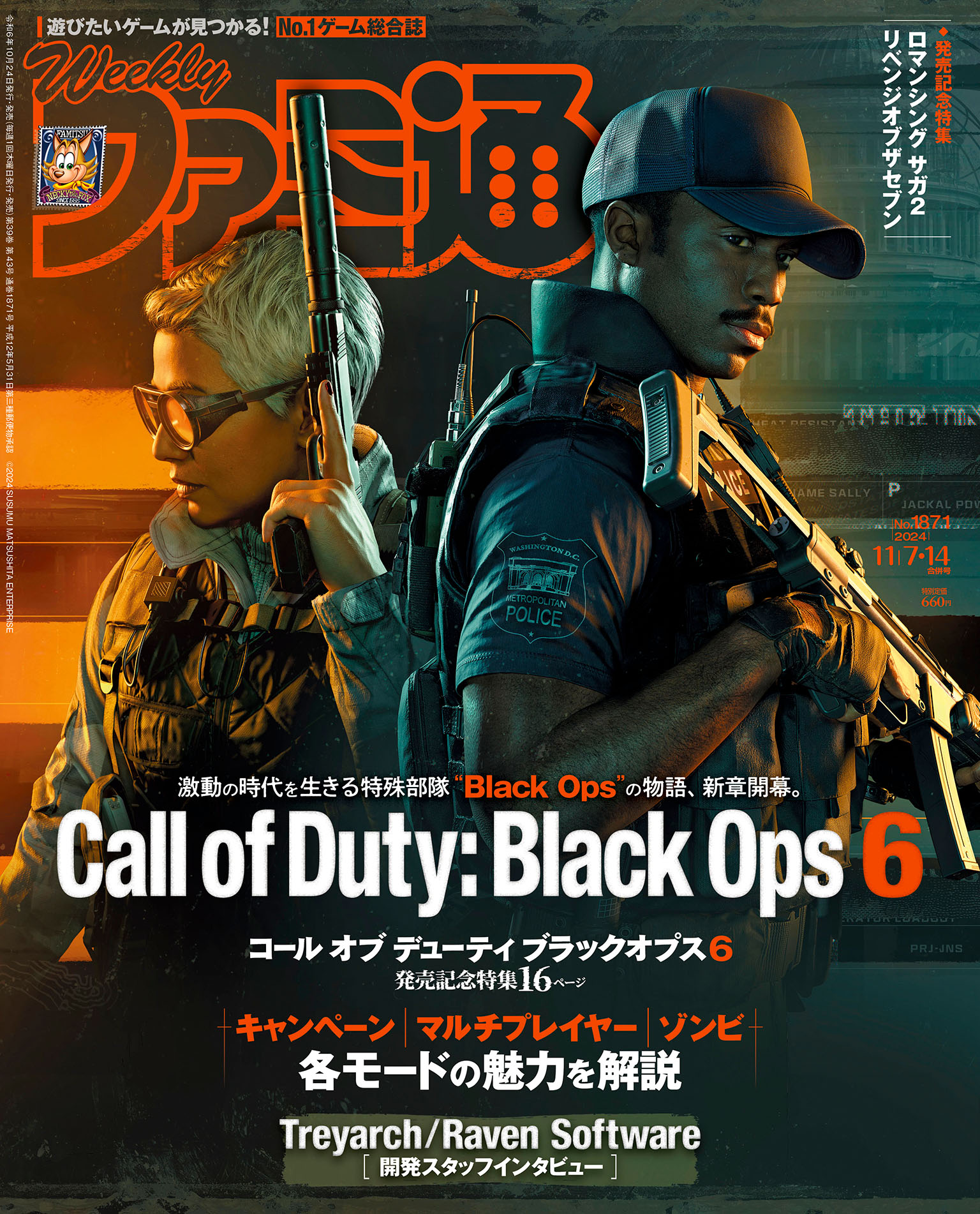After directing games such as Final Fantasy Type-0 and Final Fantasy XV during his time at Square Enix, Hajime Tabata went independent, founding JP GAMES in February 2019. Since then, the company has had its hands full with the release of its first title, The Pegasus Dream Tour, a smartphone game launched on June 24. We managed to sit down with Tabata here at Famitsu to discusses what’s currently on his plate, plus his future prospects.
(Interview conducted by Katsuhiko Hayashi, Weekly Famitsu Editor)
Hajime Tabata
JP GAMES CEO
Famitsu: I was hoping you could tell us about the vision you have for your company and what you're working on at the moment. I guess first, walk us through the sequence of events that led to JP GAMES being founded.
Tabata:While I was at Square Enix, since around the time I was working on Type-0, I became involved in the business side of things in addition to my developer duties. During FFXV, my workload was split half-and-half between both of those things. As a result of that experience, I found myself wanting to attempt to pursue a new business involving games for the second half of my personal career. Specifically, I wanted to create a new kind of games business from the ground up that could expand the possibilities of games themselves, as well as contribute to society and help solve problems alongside people from outside industries.
Famitsu: Basically, you weren't interested in traditional game development and wanted to try your hand at something new?
Tabata:Right, and I figured that the only way I could make that happen was by going independent. My work at JP GAMES therefore started in earnest in February 2019. Right now, our business is equally split between creating games as entertainment like what I used to do at Square Enix and those social service efforts by way of other games such as The Pegasus Dream Tour.
Famitsu: You mentioned wanting to create games differently this time around by bringing in collaborators from outside of the game industry.
Tabata:My thinking is that I want more people in society to be able to appreciate what games have to offer, not just existing players who already understand their appeal and worth. As I was going around across the world to promote FFXV, I thought that surely the place and purpose of games could still be bigger, more expansive than it is now.
Famitsu: Meaning you felt that games still had unfulfilled potential?
Tabata:I think right now, games can already be great sources of strength that help people get through their days. Taken a step further, it seems to me what games could next do is make the world a better place and create a brighter future. These days especially, ideas such as diversity and sustainability have become widespread in Japan. What I want to do, essentially, is work where I can uphold those social responsibilities through games while at the same time also advancing them as an entertainment medium.
Famitsu: That's why you founded JP GAMES, to personally carry out that social initiative via games.
Tabata:Exactly. The thing is, you can't put out a game that people play to contribute to society and expect it to sell like you would something more conventional. My first step, then, was figuring out how to turn this idea into a functioning business. By "functioning," I don't mean in terms of marketing or monetizing in-game content. It had to be a method in line with my desire to create that new type of video game business entirely.
Famitsu: The Pegasus Dream Tour is JP GAMES' first released project. Was it always the intention to first put out a more socially-oriented project first rather than a traditional game?
Tabata:This question ties into something that had been weighing on my mind even before I became independent. If I started things off by going into traditional game development, the work itself would be straightforward and familiar enough. But that would mean I'd be completely occupied with that game for at least several years and in the end, I wouldn't be able to do anything all that new. During that period as I was hashing things out, I had a chance to meet with Xavier Gonzalez, the former CEO of the International Paralympic Committee. He told me that they were interested in adapting the Paralympics into a game and that I'd been recommended for the job.
Famitsu: That led to The Pegasus Dream Tour, I take it?
Tabata:Yes. When I heard his proposal, I thought it could be interesting to work on. I've watched the Olympics and Paralympics on multiple occasions and the latter has been visibly modernizing since the London games. The way the events and athletes were depicted had evolved, as had the marketing. It looked genuinely cool. When they said that they were encountering challenges hosting it in Tokyo, I thought it would be really neat if a game could address them.
Famitsu: What sort of challenges are you referring to?
Tabata:Awareness and overall interest in the Paralympics is low in Japan compared to Western countries. Honestly, I couldn't claim to properly understand them back then, either. To try and figure out just how realistically the committee was mulling over the game adaptation, I met with them in person to talk things over. That's when I found out Gonzalez was personally against the idea of doing a game.
Famitsu: Even though he's the one that brought the idea to you?
Tabata:I remember what he said well. It was something to the effect of, "I don't like games. My son wastes time that he should be using to study playing them and I can't imagine that'll be good for him in the long run." (laughs) Ironically, that's what made me decide that should be JP GAMES' first project, making an official game for the Paralympics.
Famitsu: The encounter basically lit a fire in you, so to speak?
Tabata:You could say that. I felt a little as though I had something to prove. As you play games, they become internalized as personal experiences, which makes them a medium really apt for fostering memory retention. When you think of them like that, games can be useful for a wide variety of purposes.
Famitsu: And, in part to prove that point, that's why you decided to create something about the Paralympics.
Tabata:Right. I proposed that I didn't want to do something half-hearted. I wanted to make a game with real social value, the kind that could change Gonzalez's mind, and asked if they would let me go forward with it. He responded yes since I felt so strongly about it and from there, we were committed to the project.
Famitsu: That's interesting to hear. When did all of this take place?
Tabata:Around the end of 2018. I left Square Enix in October that year. I was lucky enough to be immediately inundated with offers to go work on various projects, so at that point, I was still contemplating my next step. Emotionally, though, I felt if I started JP GAMES as just an extension of my past work in development, it wouldn't really be much of a new venture at all. I really wanted to break out and do something new from the get-go, even if I had to force it. That meeting I had with Gonzalez was what cemented the direction I wanted to take.
Setting the Paralympics in a Virtual City
Famitsu: Were there any concerns you had when it came to building something around the Paralympics?
Tabata:This might tick off some people on their end, but my first thought was that, frankly, even with simply monetizing the Paralympics, we really had our work cut out for us. If you look at the videos posted to the IPC's official YouTube account, you'll see that most of them fall within the range of 200 to 300 views. Even the videos of tournaments that got a lot of attention tend to garner only a few thousand views. I realized if we simply made a straight adaptation of Paralympic events, we'd probably have a similar number of players who would really support that in the core audience. Knowing that, I decided to split up the content production and business sides of the equation and work on each one distinctly.
Famitsu: You couldn't adopt the same approach that you could with the Olympics.
Tabata:Correct. I had to really think about how we would realize this whole endeavor, which tied into my efforts to put together that new type of game business that made me strike out on my own in the first place.
Famitsu: So, it wasn't that you knew upfront how to proceed given that you'd be working with the Paralympics. After you decided to work with them, you found ways to incorporate them into ideas that you had bouncing around in your head?
Tabata:You've got it. In terms of raw content, separately from the whole Paralympics initiative, I wanted to get into urban development using game technology, building things like virtual cities. Then it dawned on me that a virtual city centered around the philosophy of the Paralympics could be interesting to produce. Since a more straightforward take on the Paralympics as a game would have trouble achieving mass recognition, I wanted our first task at JP GAMES to instead focus on constructing that virtual world.
Unfortunately, the board members at the IPC didn't really grasp what I was getting at. They thought that since the Olympics had minigame collections based on their events, the Paralympic game should be similar.
Famitsu: I can see how that would sound reasonable to them.
Tabata:From the committee's standpoint, commissioning a game adaptation was an effort at leaving a lasting legacy of the Tokyo games. They felt it was important to do something. Personally, I was of the mind that if this is something we're going to make, we should make sure lots of players are exposed to it and get to enjoy it. That's why when was I was able to sit down with them directly, I made it clear that I felt we had to go about this completely differently than the Olympics in order to make it widely known. I took a lot of time explaining my reasoning in concrete detail and, in the end, managed to get through to them.
Famitsu: Let's go back to that virtual city idea that you mentioned mulling over. How did you even come up with that?
Tabata:FFXV was a global simultaneous release. On launch day, we had over 5 million people across the world playing it at the same time. With a player base that big, it was like we had managed to erect a megacity overnight with the game. The way I prefer to create games, first, I create the world and then later, as I'm polishing that up, I fill it out with lots of different experiences. That way, it becomes a place that feels inviting to players. It hit me that even for a non-game world, the same basic ideas still probably apply.
Famitsu: Sure, you're still building up a world and trying to attract people to it.
Tabata:I had a hunch that game technology and overall knowhow was going to prove more and more incredibly useful for creating the virtual lifestyles of the future. After FFXV came out, we had lots of companies approach us about the possibility of collaborating on urban development, including major construction outlets and firms with urban simulation technology.
Famitsu: In the virtual Pegasus City where the game takes place, players can freely communicate with one another, right?
Tabata:It's the avatars themselves that communicate of their own accord. The way the game is set up, players go to Pegasus City to meet their own avatar. We want to grow the game so that ideally players don't simply play through it all and put it down, but come back to visit it from time to time.
That being said, the nature of the gameplay has changed considerably compared to what it was like before the pandemic.
Famitsu: How did it end up changing?
Tabata:At first, it was primarily directly controlled. But the project was put on hold when both the Olympics and Paralympics were delayed. Once work resumed around last fall, the main control method shifted to having the avatars operate autonomously.
The part where the players become athletes in the game remains unchanged. However, in the version we were developing last year, as a side story, they would use gear to fight enemies and become heroes as they got stronger. Unfortunately, in the midst of such a severe global pandemic, with the Tokyo games being held this year, I came to the conclusion that we wouldn't be able to deliver such a game in time. With 2021 as our deadline, we instead shifted the concept to one where everyone comes together to overcome divisions.
Famitsu: What you describe sounds like a wildly different game for sure.
Tabata:The idea of emphasizing connections through avatars is something of a modest experiment built with an eye towards the world of the future. The Pegasus Dream Tour emphasizes less traditional design sensibilities as it does expression driven by personal sensibilities. You might call it something of an art piece.
Actually, it's also worth mentioning that a lot of younger women are the primary driving force of the game's development. I don't mean only at our company, either. We've been working with a lot of companies that boast large rosters of women artists and creators. It's a game that vigorously embraces the idea of a game that serves a purpose to society, as envisioned by these women.
Famitsu: Do you think The Pegasus Tour is something your average game player can pick up and enjoy?
Tabata:Sure, I think they can enjoy it, even if it's a peculiar game, I'll admit. (laughs) From a more hardcore viewpoint, what we've made is something rather unusual. It's the sort of idea that hasn't really come out of game developers until now, including myself, which makes it feel genuinely new and intriguing. Of course, there are key things it's attempting to fulfill as part of a general direction. But the content itself is made by a generation of developers young enough to be my own kids and what they've created has proven to be pretty surprising, if you ask me.
As an aside, Bridgestone has been supporting this project and the women who work there have been especially receptive. We enjoy a good, close relationship with that team. They offer words of support and watch over things. It makes sense; it's a game you get emotionally invested in, especially with our avatars that look so charming.
Defying the Framework of Typical Games
Famitsu: There's also the part where music artists will hold live shows within Pegasus City. How will those work?
Tabata:Live shows are held in a separate arena. Once their respective events are underway, for their duration, the game plays out a story revolving around that concert. Everybody in the city will help set up the venue as a sort of exercise in social contribution. The idea is that those who work hard and contribute will be given special bonuses and rewards in return.
Famitsu: What sort of shows can we expect to see?
Tabata:These concerts won't simply have artists putting on shows in avatar form while fans passively watch. They'll be a little more experimental than that. With, say, Pikotaro's PPAP, it'll be a performance where the apple-pen restores a divided world and its people back to normal. Pretty groundbreaking stuff, I'd reckon. (laughs)
Famitsu: That does sound fun. (laughs)
Tabata:Later on, a pavilion will appear as well, which players will navigate using the Anywhere Door since it's a special kind of place. Basically, we're using one of Doraemon's secret gadgets to justify how the place has its mysterious powers. (laughs)
Famitsu: I have to admit, it's a little surreal seeing him show up in Pegasus City.
Tabata:Initially, we discussed potentially setting the game in the 22nd century, which is where Doraemon comes from. But, after talking it over with Fujiko Pro, we settled on having it take place in its own world. Despite that, he still appears as the acting mayor. Plus, the avatar camera and Personal Eco Guide helper character, or "PEG," are portrayed as two of his gadgets. The designs of the gadgets themselves were also supervised by Fujiko Pro.
Famitsu: It seems the Pegasus Dream Tour is shaping up to be really interesting in a lot of ways.
Tabata:I'm not aware of any games other than this that were created with the goal of serving a social good in mind. It takes courage to embark on a project such as this, so if it ends up defying the framework of typical games in multiple ways, that's fine by me. In a sense, it's a genuinely experimental work, which, in my mind, makes it fitting as JP GAMES' first release.
Famitsu: Sounds like it's been a good, fulfilling challenge to work on.
Tabata:It has. The goal of this as an official Paralympics game, in a nutshell, is to give them renewed branding and leave a noticeable impact on society, even if just a little. If we can pull that much off, we'll be able to call it a success. As for us at JP GAMES, our own mission is to find a way to turn all of that work into a proper business for us.
Famitsu: On that note, how is this game going to be monetized?
Tabata:There's some monetization within the app proper. Attending music artists' concerts will cost money, for example. But those fees are going to compensate artists or be used as donations. They won't serve as revenue for us specifically.
What we're going to sell from this work is the Pegasus World Kit, which is an enterprise-level digitization support tool suite that expands upon the technology and assets used in The Pegasus Dream Tour. With our tools, organizations will able to easily create virtual cities like Pegasus City, enabling them to forge new relationships with their clients.
Famitsu: So, the monetization is targeted at businesses, rather than individual users.
Tabata:Correct. It's the first step in my attempts to conduct a business that can contribute to society via games.
Famitsu: Companies such as Epic Games, JCB, and Soramitsu have partnered up with your company for the Pegasus World Kit, haven't they?
Tabata:Yes, that's right. The Pegasus World kit frames together two functions: 1. Unreal Engine-based RPG-style game development, and 2. connectivity to external services such as e-commerce platforms. Having said that, there are things this technology wouldn't be able to cover if we tried to sell and support the software solely on our own. Some customers may, for instance, design shopping malls using the features that are already in the kit. But others may choose to write their own Unreal Engine scripts to add new features entirely. To that end, we've been lucky enough to enlist the assistance of Epic Games themselves
What we're doing with JCB and Soramitsu, a blockchain technology company, is a little different. As virtual world services progress, structures to manage them in a unified fashioned will become necessary. We're asking those two companies to build systems that will handle ID and transactional functions, as well as other important data, via the blockchain.
Famitsu: I see.
Tabata:Put another way, you can think of the kit as a sort of transfrontier platform. Already, with the beta version, the technology has been integrated into the development of a virtual travel project that we're working on in conjunction with All Nippon Airways.
Let’s pretend Famitsu wanted to get in on the action and made something like "Famitsu Town." You could invite your readers to it, where they would share and exchange information. Then, from there, they could all head over to ANA's virtual travel world.
Famitsu: If someone wanted to sell books and magazines in that space, you're saying they could.
Tabata:Precisely. Basically, what I came to realize is, if you take a game world, but remove the standard game rules binding it, you're left with a space that businesses can use in all kinds of ways for their digitization efforts.
Famitsu: So that's how you intend to spread this toolkit. This all seems neat.
Tabata:Game technology is quite outstanding and can accommodate a wide spectrum of needs. The control mechanism you adopt to make a character move, for example, can make all the difference qualitatively both within games and elsewhere. Game players are a highly demanding bunch, which leads us developers to refine and improve our work to meet those expectations. After all, people can't properly play and enjoy your game unless you make it so their thoughts translate well to a controller.
Screen transitions also have to be built in a way that people don't feel lost, too. When I interact with UI on an everyday basis that's poorly designed, it reminds me just how much games really are amazing in that respect.
Work on Two Major Games Underway
Famitsu: I know we've been talking a lot about The Pegasus Dream Tour and whatnot until now, but as someone who's also an ordinary game player myself, I'm interested to hear what else you're up to on that end.
Tabata:Of course. Right now, we have two game titles in development. One of them has wrapped up preproduction work, while work on the other one has only recently gotten underway. Both of them are being made in tandem with major corporations.
Famitsu: What would you say is the scope of both of these titles?
Tabata:Each of them are big projects. The one that's further along is a cutting-edge, experimental game, while the other one coming later is a world-class AAA game.
Famitsu: I take it they're both games that you wanted to make?
Tabata:That's right. I've been wanting to do both of these games for some time. With social contribution initiatives like The Pegasus Dream Tour, I come at them from a very business-driven mindset. But these other games are more out of my personal interests. I've been using them to probe my ideas of how I feel games should evolve. As a side note, they both actually have tentative genre names that spell out their underlying concepts.
Famitsu: Oh? I’d love to hear them!
Tabata:The first game is what we're calling a "high-speed RPG." The second one, meanwhile, is a "nomadic RPG." The high-speed RPG is our attempt to take RPGs, a genre that can take 20 to 40 hours to beat, and shorten the play time for individual runs further. The idea is to provide a tight, condensed RPG experience, one that can be played countless times in multiplayer.
As for the nomadic RPG, the plan is to take the open roaming you see in real world nomadic lifestyles and incorporate that into a large-scale game. For that project, we'd need to staff up significantly if we were to attempt to build the prototype completely in-house, so starting at this stage, we're making preparations to work together with multiple companies to create this game.
Famitsu: Speaking of which, how's the development structure set up at JP GAMES?
Tabata:If we're only talking about proper employees at the company, right now we have a little over 30 people, which are split between our games and sustainability divisions. If you include freelancers working for us under contract and other individuals, then the core team is roughly 60 people total. Going forward, I expect the size of our internal staff to grow slightly for the AAA project.
Famitsu: Are there a lot of people there internally who have worked with you in the past?
Tabata:There are some previous colleagues, but the majority of employees aren't. The programmers, for example, are composed of a lot of young people and foreigners. On the flip side, the companies that we've partnered with for development are largely those that I've worked with since my Square Enix days.
Famitsu: I find it really intriguing how you're juggling not only a AAA game and an experimental title, but two other projects at the same time.
Tabata:With respect to the home console and PC markets, unless you make either a game that breaks into the Western mainstream, or a more honed, focused experience that feels engaging and innovative, it's hard to know how things will land. You can try to throw a big budget at a game, but that alone won't be enough to make inroads with global players who lean towards AAA fare.
When trying to figure out which of these directions to pursue, a game bringing together different technologies that can compete at a global AAA level, or something geared more towards players who enjoy our unique style of games, ultimately, I came to the conclusion that we should aim for both.
Famitsu: Is the AAA project something you're looking to reach those who maybe haven't had an interest in games before?
Tabata:I'd like it to do so, but ensuring it appeals to those primarily AAA players comes first. When that isn't our direction, for those looking for a particular type of experience, we hope to deliver to them something that's one further step ahead.
Famitsu: As with many other things, I get the feeling that with games, depending on what you're making, AAA or not, who you should target and how can vary.
Tabata:That's absolutely true. If you roughly divide what we do at JP GAMES, you could say we're both an urban development business and a game developer. The urban development work is very much aimed at the general population. In that realm, you have to make spaces that feel fair to everyone. It's important to have systems in place where all sides are respected and compromise with one another. In that sense, what we offer is a so-called "space" service where we make and provide spaces for everyone that individuals can feel safe joining and come together.
Famitsu: "Space service" is an apt description.
Tabata:But with games, in contrast, what's important is how well people can be satisfied individually. Sure, you can think of games as spaces for everyone, too, but, in my mind, even with an online game, making sure individuals are having the best personal experience is crucial. Which is to say, the game side of the business is a service about offering experiences, the kind where each player is having the best time. Different creators have their own philosophies about these things, but my idea of games leans towards offering realms where players feel on top of the world.
Famitsu: I have to imagine each side of the company has its own difficulties.
Tabata:To say the least. But what's interesting about games is how technology enables things over time. What's impossible now can become viable in a matter of just a few years. That's why I always love working in games, because it's an industry that's forever rapidly evolving and changing.
Famitsu: Yours obviously isn't the only company working on things like virtual cities. Are you thinking of any collaborations along those lines?
Tabata:We're already working together with a number of different companies. In fact, we get inquiries from major companies in industries that I've never even worked with until now. I've spent more than 20 years working in the game industry, yet I'm making deals with trading houses for the first time in my life.
Famitsu: That must be exciting.
Tabata:It really is. Several years ago, the Japanese government defined Society 5.0* as the next form that society will take now that it’s entered the information age. To do so, cyberworlds will emerge by way of advances in AI and other technology, improving the quality of life in the real world. In my opinion, it's game developers who should be at the center of efforts to bring Society 5.0 to life. To that end, as we speak, we're bolstering coordination with like-minded developers on things such as technology and development structures.
※The Japanese Cabinet Office officially defines Society 5.0 as "A human-centered society that balances economic advancement with the resolution of social problems by a system that highly integrates cyberspace and physical space."
Famitsu: I can't wait to hear more about what all you get up to in the future. Just to clarify, both sides of JP GAMES, the social contribution arm and the game development side, are equally important, right? One isn’t the main business and the other a side one?
Tabata:Right. I went independent precisely because I felt that I could pursue both of those things. If I could only do one, I don't think I would have left and carried all of the risk that comes with it. Also, I don't want to devote myself to the managerial side of things. We have specialists that I fully entrust our financial management and other matters to. In principle, I maintain a hands-off approach and do what I want.
Famitsu: You don't chime in on issues like cost prices?
Tabata:No, I don't. In terms of how to grow both sides, I take responsibility and make the decisions. But when it comes to matters like what sort of numeric figures we'll produce as a company in the future, I let our experts handle that. Right now, we have a good cycle and structure where as I focus on what I want to realize, I have staff willing to go in those directions together with me, as well as various other companies who partner up with us. We've assembled a great team and set of collaborators. We think everyone will have a lot to look forward to from us in the future.
Famitsu: As always when speaking with you, this has been a conversation full of big ideas. I'm curious to see how younger generations respond to The Pegasus Dream Tour.
Tabata:Starting in August, music artists will begin holding those concerts that I mentioned. The fans of those artists who have agreed to come on run a really wide gamut. We'll definitely be paying attention to how those younger fans act first and foremost. Most likely, they won't suddenly start downloading the app en masse, but as we figure out what to do next, we'll keep improving the experience and work on it continuously. Those are the sorts of conversations we're having with the artists' representatives.
Famitsu: I'm sure signal boosting on social media will also help.
Tabata:I think so, too. Yuzuru Hanyu agreed to be our ambassador for the game and even if a lot of his fans don't end up downloading the game, they've still at least caught wind of it on social media. We also have a social media project in the works for August that we'll be conducting alongside influencers who have embraced the game. Like their followers, these influencers tend to be on the younger side. A lot of ideas emerge from them that us older developers wouldn't come up with on our own.
I don't want people to put the brakes on things just because something doesn't line up with how I tend to view things as a developer. We've made it so that veteran creators serve more of a supporting role on this project. It's the young women on the team who have brought this game with such unique character to life. They're the ones who are linking up with these music artists and influencers and have worked so boldly at the very center of its development. The game is still a work in progress, but I hope your readers give The Pegasus Dream Tour a try and experience a new kind of sensibility being brought to games.
